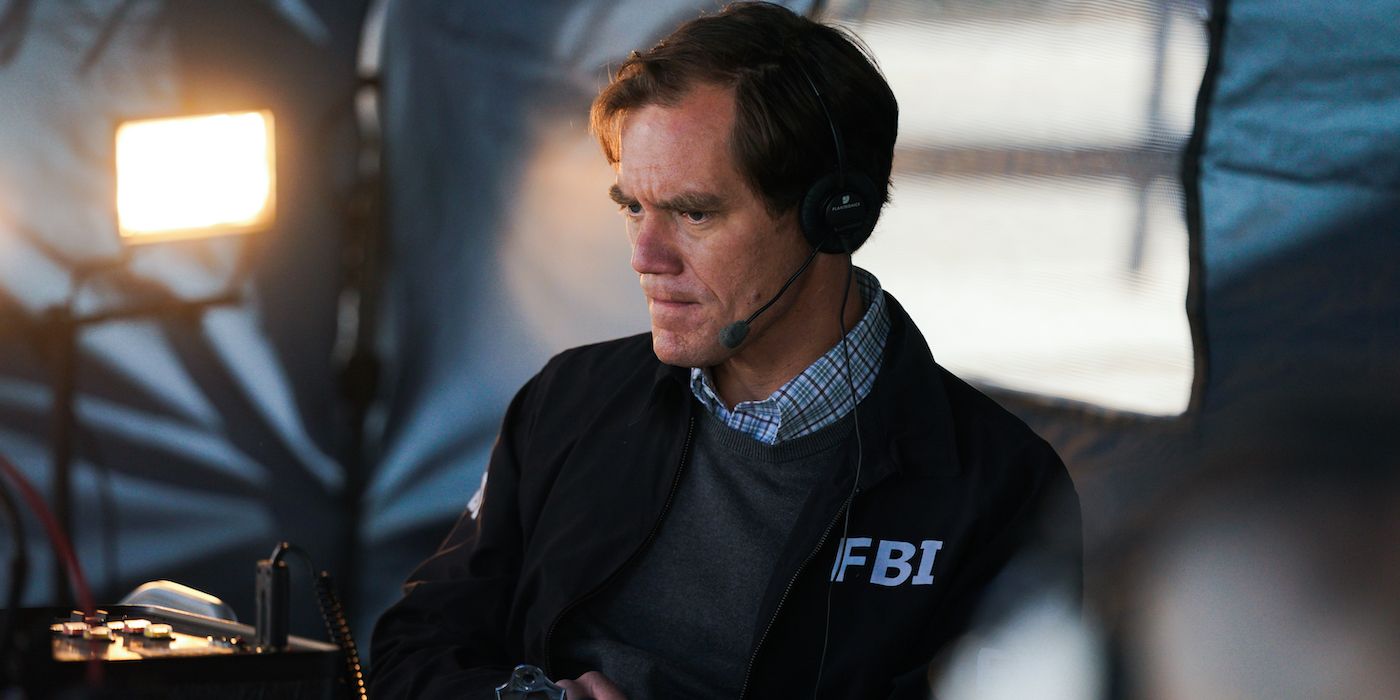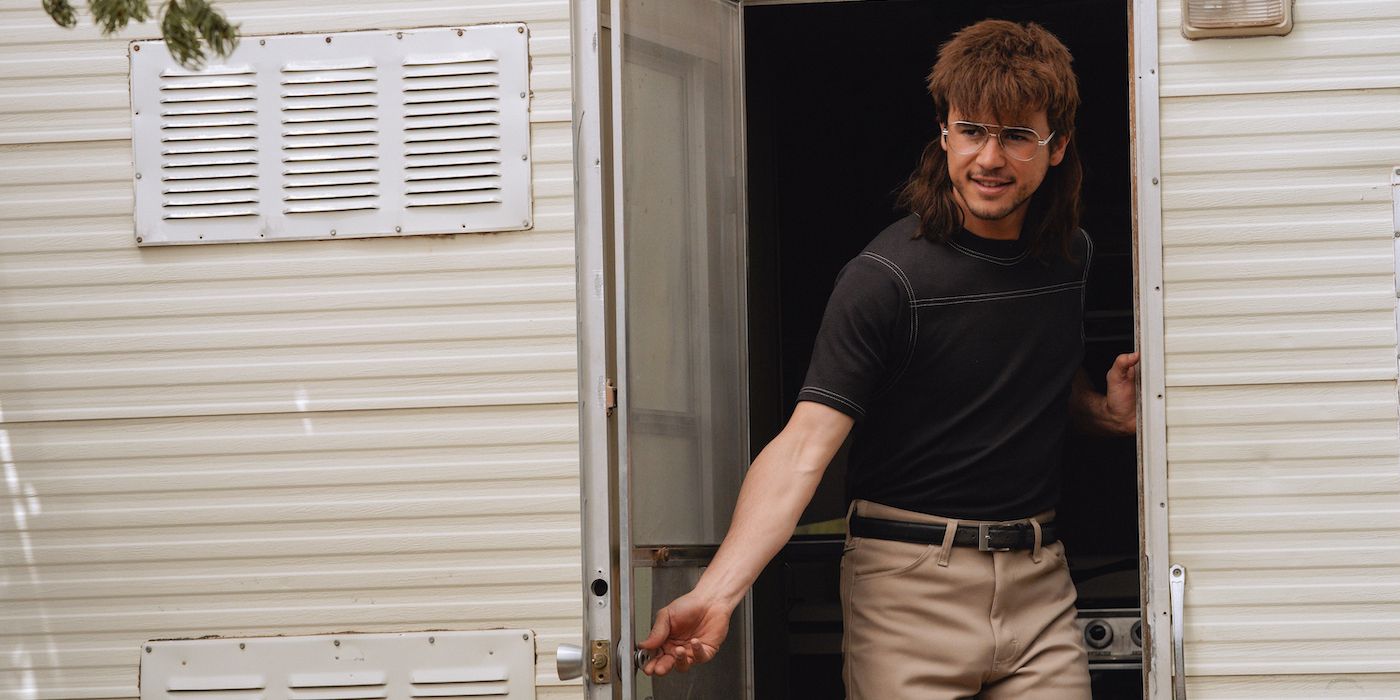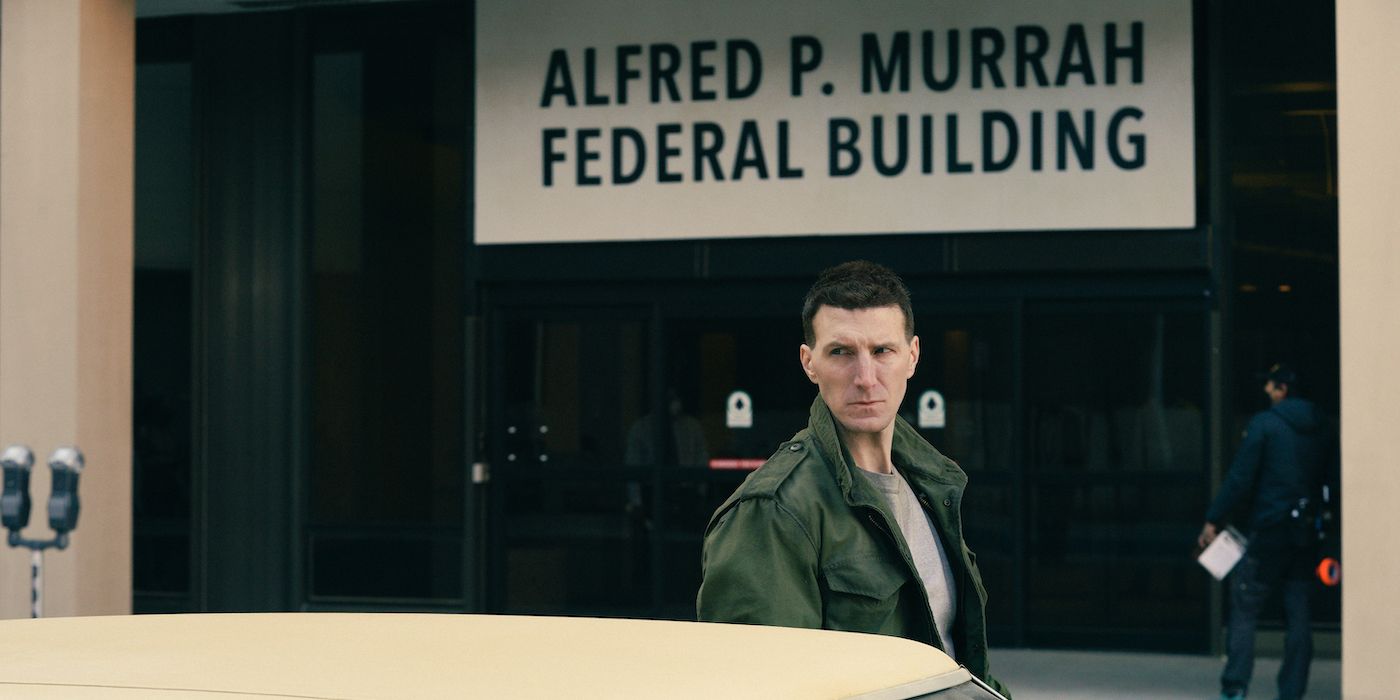There is something that is persistently strange about the very existence of Waco: The Aftermath. The sequel to 2018’s Waco, a dramatization that ended up being engaging enough as a harrowing thriller though abundantly superficial as a retelling of history, never makes a strong enough case for its existence over the course of its five episodes. Telling what are essentially three different stories in the aftermath of the real 1993 standoff, it stretches history far beyond its breaking point when it should have stayed a miniseries. In doing so, even with a talented cast that includes a returning Michael Shannon, it never comes together into anything substantive despite increasingly misguided attempts to grasp for something more. Even those that were taken in by the first season will find that there is a near-complete lack of focus in this forced follow-up that fails to justify its narrative extension.
Waco: The Aftermath picks back up with Shannon's FBI hostage negotiator Gary Noesner, still conspicuously remaining the voice of reason considering the first part was based on his book. He is now carrying around the guilt of how terribly things went wrong at Waco while also growing concerned that it could lead to a rise in right-wing and white supremacist violence in the country. It isn’t a spoiler to say that these fears will prove to be prescient when the series gives us glimpses of Timothy McVeigh (Alex Breaux) as he prepares to blow up a building in what he sees as retaliation for the federal response to Waco. The tension comes from how the government is overlooking Noesner’s concerns, instead looking to foreign terror as the most pressing threat. While this is going on, a trial is playing out as scrappy lawyer Dan Cogdell (Giovanni Ribisi) tries to defend surviving members of the Branch Davidians who are being accused of murder and conspiracy. At the same time, making this almost into a pseudo prequel, there are extended flashbacks of how David Koresh came to form his doomsday cult. While all of this is technically connected, the show becomes completely scattered and uncertain about what it wants to aim at in terms of priority.
The fact that Koresh looms large over all of this, despite being dead, is a miscalculation as there is little reason to spend so much time trying to explore who he was before it all went down. He can’t really influence the narrative in any substantive way, yet the show seems unwilling to leave him behind and suffers as a result — and that's even before getting to the fact that the character has been recast. In the original miniseries, Koresh was played by Taylor Kitsch who was eerily charismatic even as the writing itself remained far too enamored with him and repeatedly glossed over the more distasteful aspects of the real man. Now, the budding cult leader is being played by Keean Johnson. While he does all he can to make something out of the generally inert story, it is just another perplexing narrative decision that never settles in. No matter how much he tries to bring a greater nuance to exploring why people can become swept up in a group like this, the show provides oversimplified answers time and time again. The longer it goes on, the more it blinks in the face of grappling with what remains a country defined by violent right-wing extremism.
There is a version of this series that comprehensively confronts the legacy of Waco as being a catastrophic failure by a government that emboldened the very forces they were trying to stop while not valorizing those like Koresh at the same time. By comparison, Under the Banner of Heaven managed to strike a delicate balance in the portrait it painted. It didn’t provide easy answers to what were and remain complicated questions about the capacity for violence to take hold of a country that is teetering on the brink. Waco: The Aftermath, in addition to just being poorly constructed, is woefully out of its depth. It paints with the broadest of brushes, and the legal procedural element of the story becomes downright goofy the longer the show insists on spending time with it.
Although Ribisi is always a joy to see in action, his character seems mostly one-note when given so little actual room to breathe. He is mostly confined to the courtroom or the same booth at the same bar with his lawyer pals as they try to tackle the case. A scene where he delivers a short monologue about how his clients aren’t guilty of the crimes they are being accused of yet aren’t wholly innocent either is the closest we come to him getting something a bit more substantive to work with. However, it still feels like the show is letting itself off the hook and providing cover to what remains hamfisted dialogue that just falls flat even with the cast doing their darndest to give it life. All the talented actors in the world can't salvage this material.
This extends to Shannon, who was one of the better parts of the original series and remains so here as well. He is one of those actors who, as seen in outstanding films like Take Shelter and Midnight Special, can make even the simplest of lines into something heart-wrenching. Had Waco: The Aftermath been more fully built around him and cut out all the excess noise, at least it would have had him to carry the story through its many rough patches. Alas, that is not the case, since the series gets tangled up in trying to add more and more narrative threads to sort through in order to keep things moving.
There is a moment where Shannon gets a monologue of sorts towards the end that is pointedly intercut with the buildup to an act of violence we know is coming, but the dialogue itself rings painfully hollow. Without giving anything away, he is tasked with giving a speech that embodies the show's most fatal flaw as it becomes an almost comical attempt at "bothsidesing" the violence that is soon to happen. Rather than illuminate some harder truths, it provides one final obfuscation built upon cowardice. It makes for a final bridge too far, as it creates a false equivalency that makes it impossible to take anything else the series is saying seriously. For all the ways Shannon and the rest of the cast try to give it something resembling nuance, Waco: The Aftermath reveals itself to be completely misguided from its shaky start all the way to its forced finish.
Rating: D+
Waco: The Aftermath premieres April 14 on Showtime.



